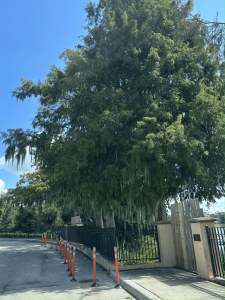On the night of Tuesday, Oct. 25, Oakland riot police used so much tear gas to disperse protesters that they created a hazy cloud that remained in the air until Wednesday morning, according to The New York Times. The New York Times also posted pictures of protesters who were bruised and bleeding from wounds caused by rubber bullets, and videos that seem to show police using flash grenades. As of the writing of this article, the Oakland police department has denied using either rubber bullets or flash grenades. Despite this disclaimer, protests continue in every major American city, from New York to Orlando. Hundreds and hundreds of people have been arrested, yet protests continue. But what, exactly, are all these people protesting?
The Occupy Wall Street (OWS) movement is protesting a substantial inequality of power. Some protesters chant about the top 1 percent of earners in America controlling a disproportionate amount of wealth. Others cry out about politicians being bought with campaign donations. No matter who you listen to or what protest sign you look at, the messages about unemployment, rampant corporate greed, the Supreme Court’s ruling in the Citizen’s United case, presidential candidates, the federal reserve, tax laws that weigh inequitably on the middle class, and corporate bailouts are all related to this main idea: there are people in America with a disproportionate amount of the economic pie, and they are using it to control our politics.
Stated so baldly, it sounds like this is a cause that only hippies and hipsters could support. This is a capitalist democracy. If you do not like someone, vote him or her out. If you do not have enough money, work harder. That is how America works, right? Except the events of the past four years do not seem to indicate that America is working properly. It does not look like America is even working. Unemployment skyrocketed from 5.8 percent in 2008 to 9.3 percent in 2009. For the past two years, unemployment in the U.S. has been higher than 9 percent, except for a small dip to 8.8 percent in early 2011. To put this into perspective, since 1948, the unemployment rate had only breached 9 percent once, from 1981-1983. If unemployment remains above 9 percent, we will have reached a level of sustained high unemployment not seen since the Great Depression. Either an unprecedented epidemic of laziness struck America, or something happened to a remarkable number of jobs to make them disappear.
Meanwhile, it has never been such a good time to be a member of the economic elite. Between tax cuts for the ultrarich and corporate bailouts, the federal government seems to have bent over backward so the wealthy can remain wealthy. But now it is paralyzed in the face of the growing numbers of the unemployed. Why the prioritization of retaining wealth in the hands of those who already possess it in excess? Why denounce public spending to reinvigorate the economy as irresponsible when there is a tax base that, since the Bush years, has had lower tax rates than ever and could be used to finance said projects? Why block federal regulation that would prevent a market collapse similar to the current situation, one that could have been prevented by increased regulation? It all looks more than a little suspicious, and has led thousands to take to the streets in protest.
This is what OWS is about. It is an angry, shouting demand for economic and political reform by hardworking people who suspect that the rules of the market and the rules of public participation in government are stacked against them.
They are not going anywhere soon, and they promise that next year’s presidential and congressional races are going to be worth watching. If you want to learn more about why OWS protesters believe our political and economic systems have been hijacked, or learn more about the movement in general, you can go to http://occupywallst.org. This is a movement with legitimate concerns that demands respect. It will shape the way politicians talk about economics and their priorities in the upcoming elections. OWS will not be dismissed or ignored. After all, they are the 99 percent.









Be First to Comment